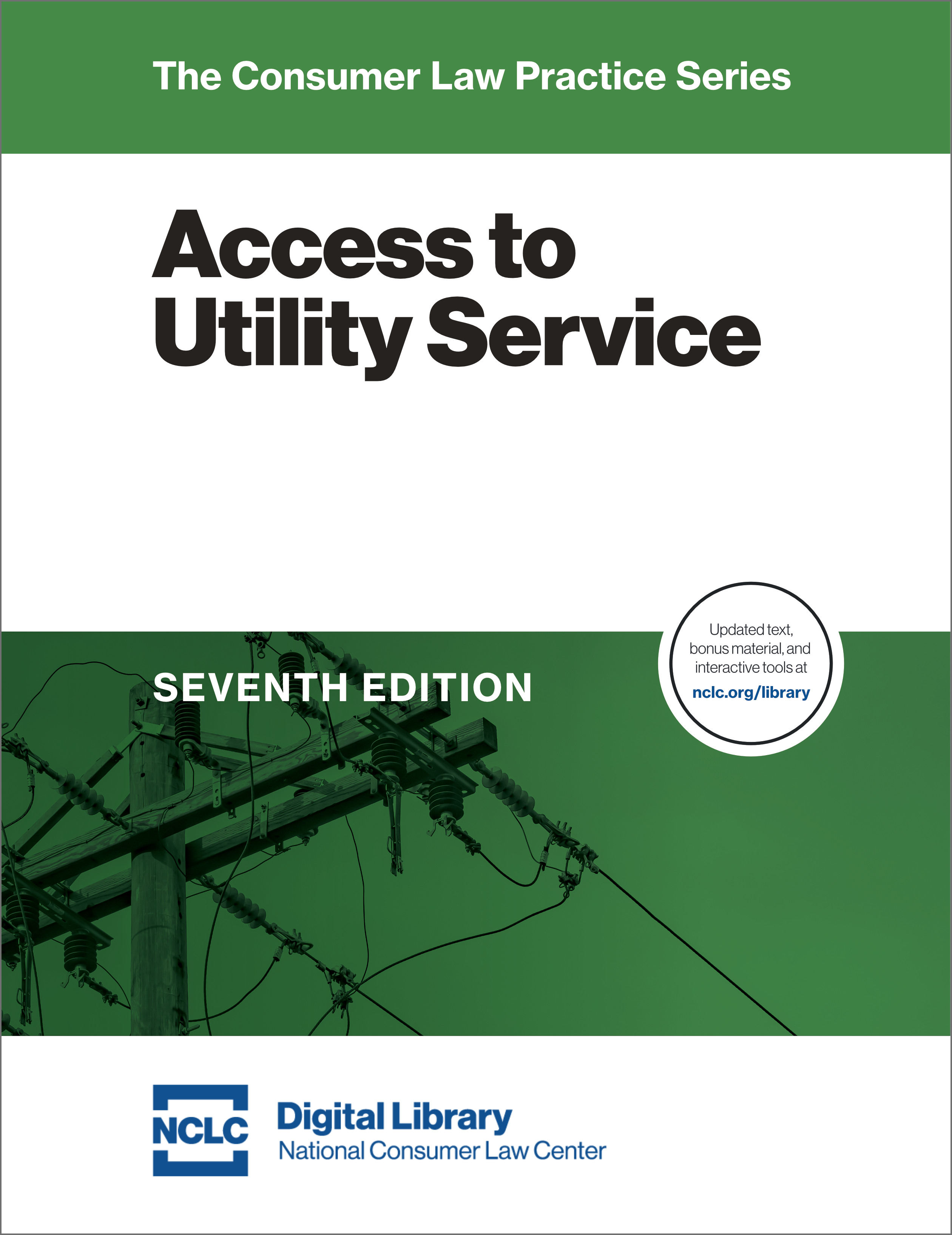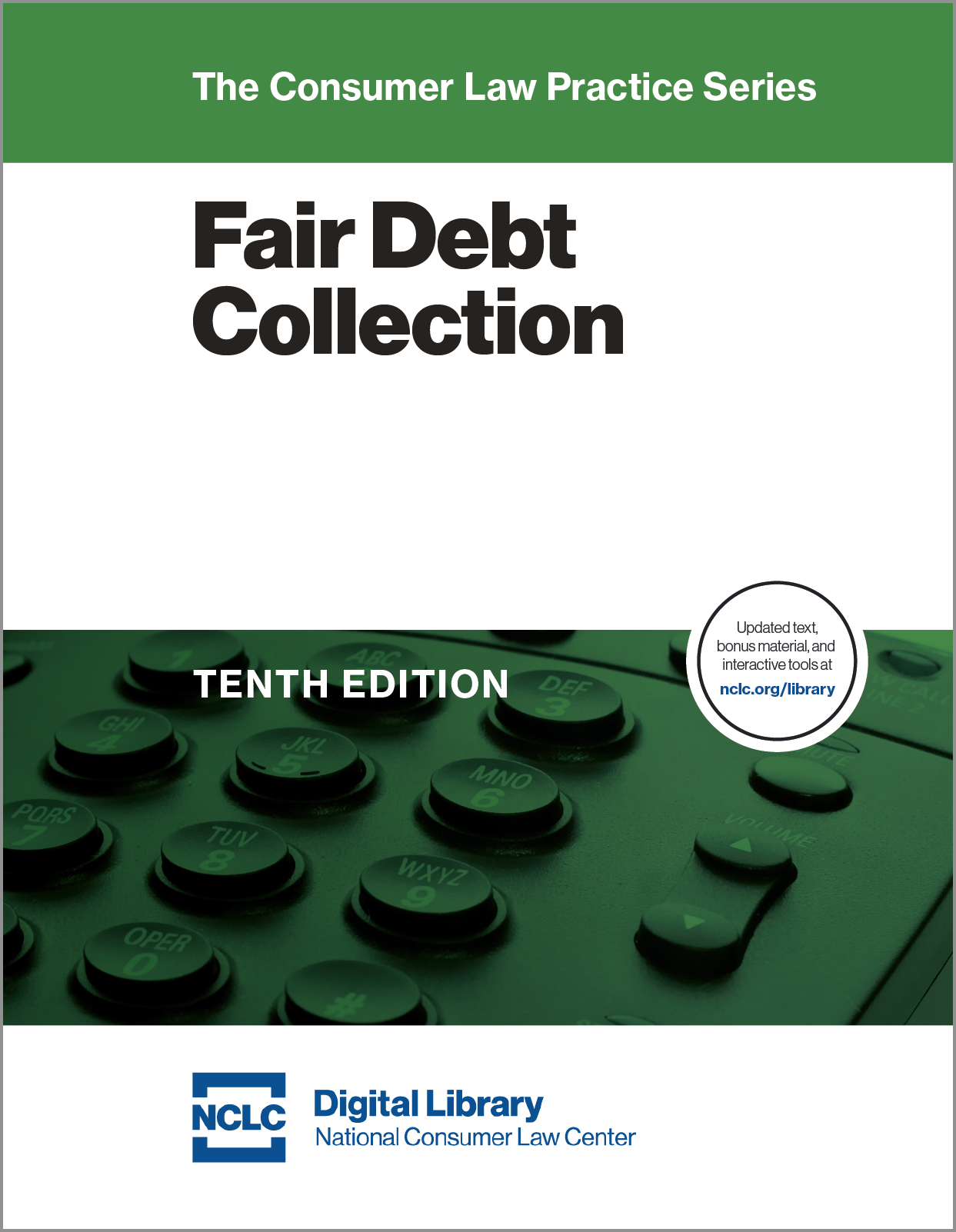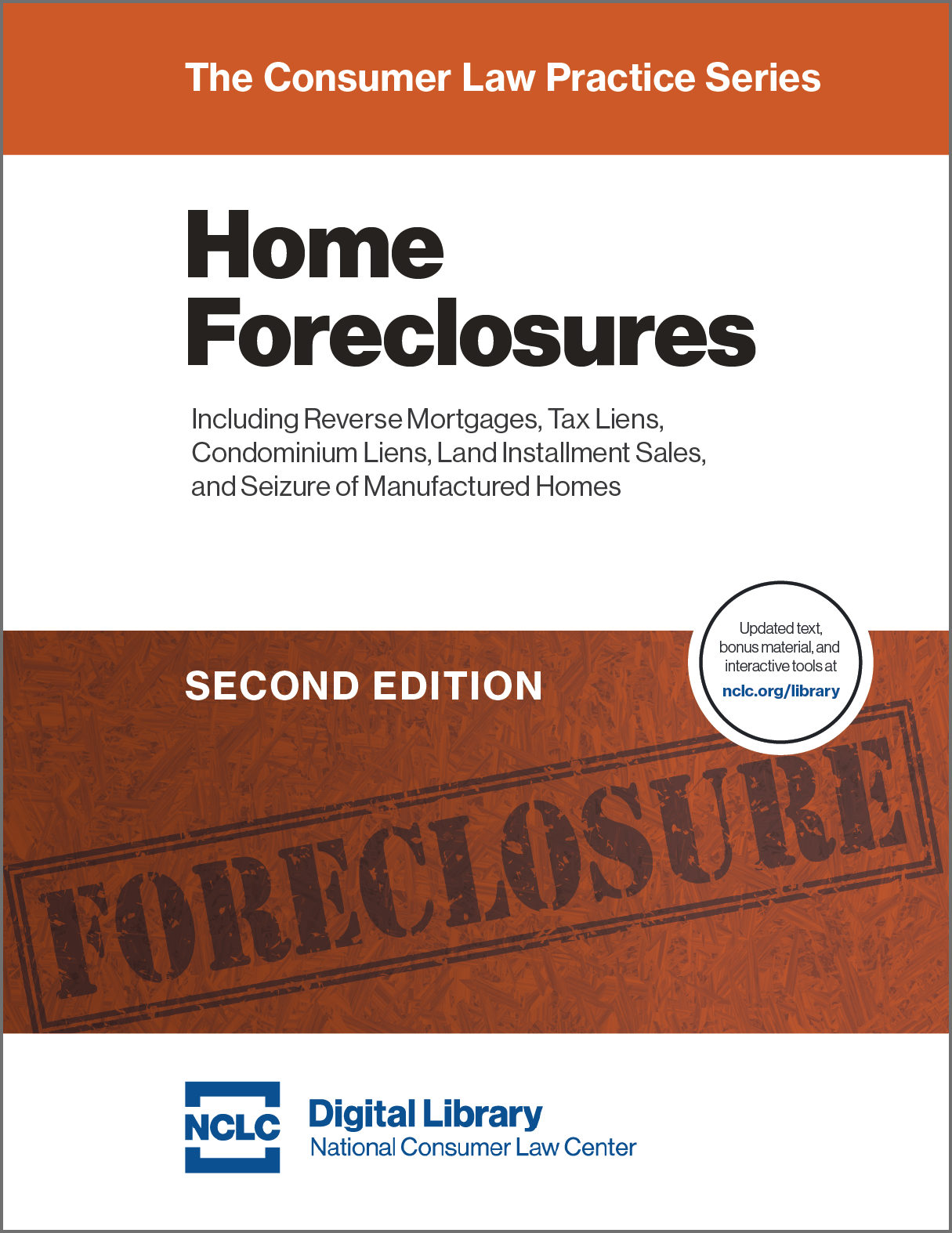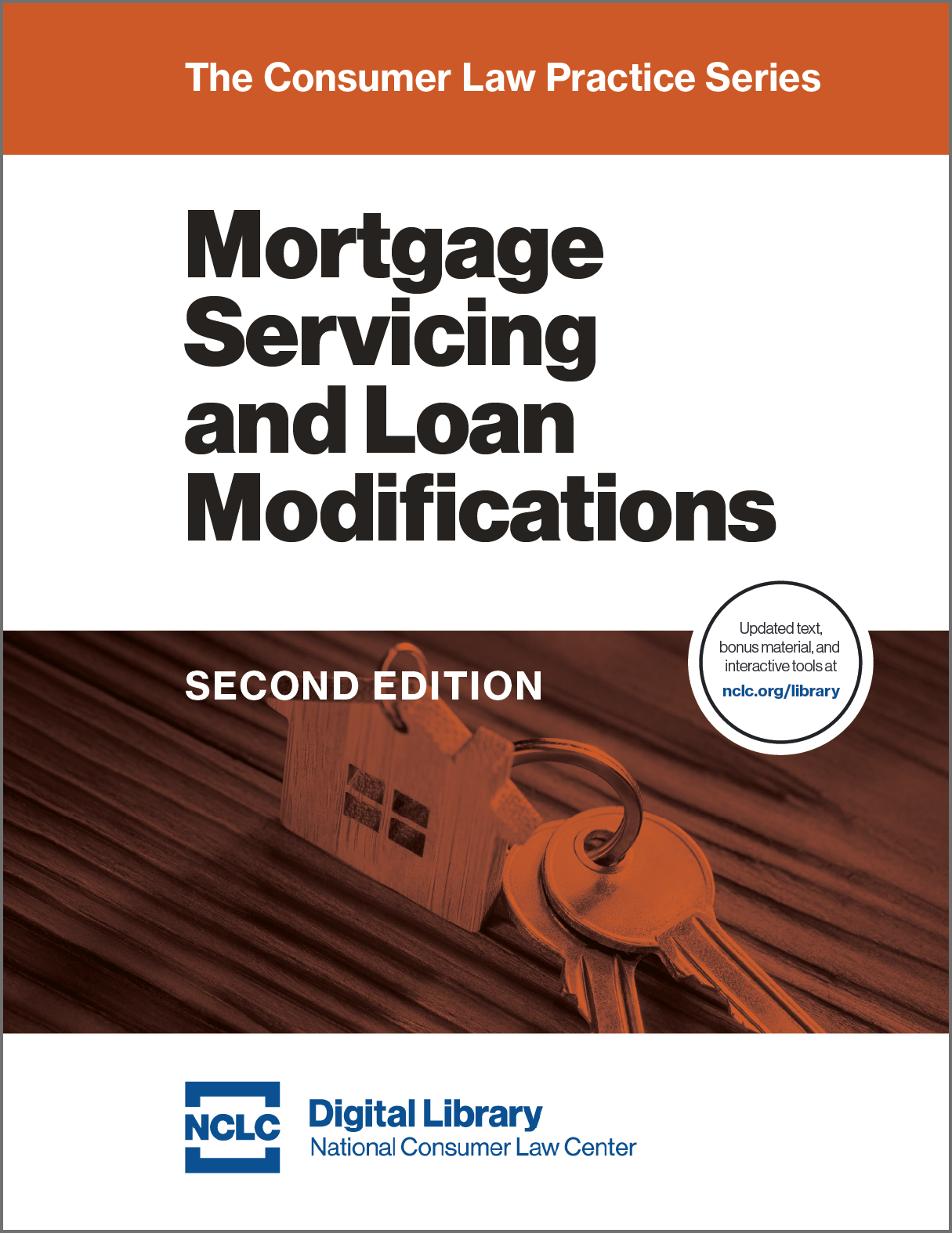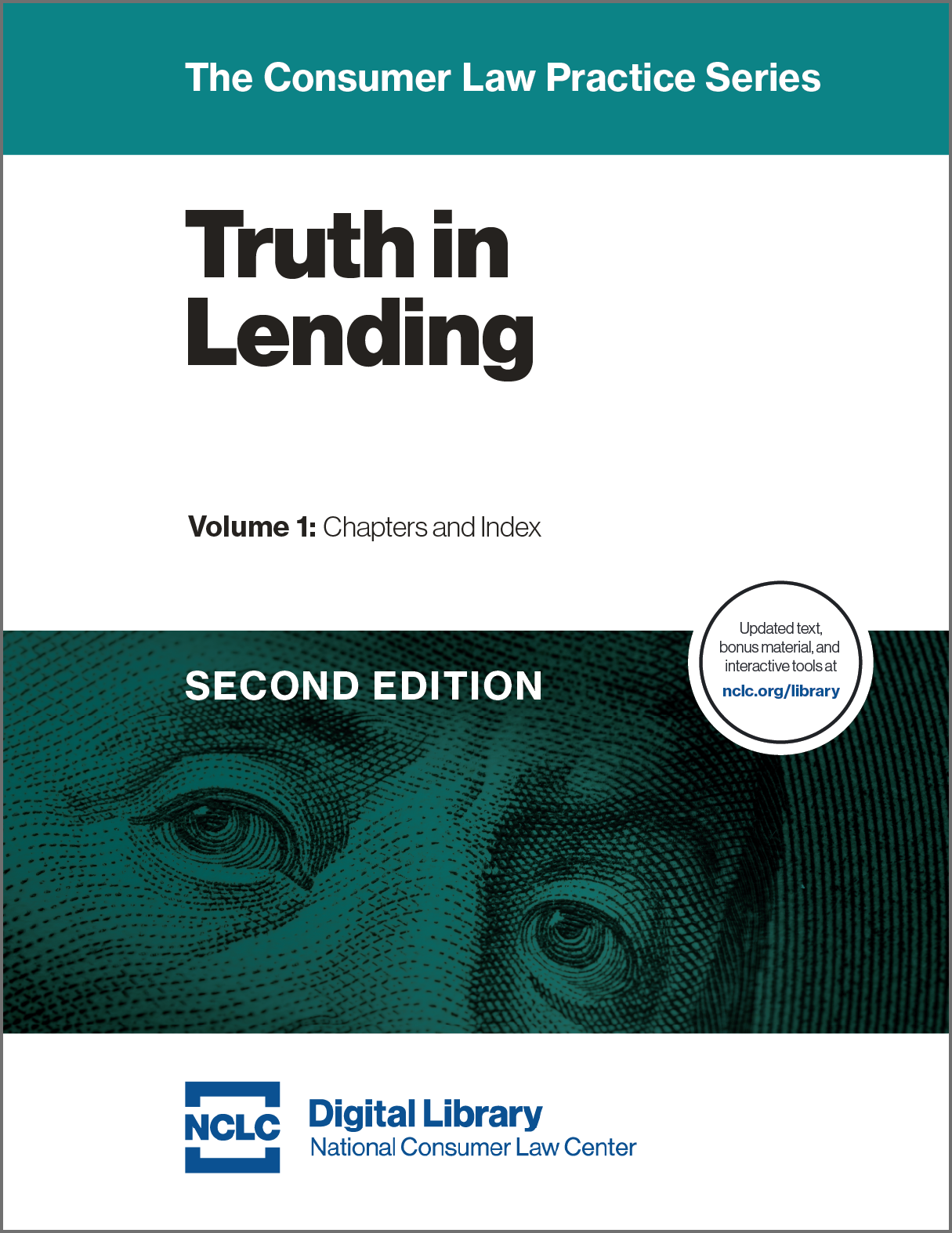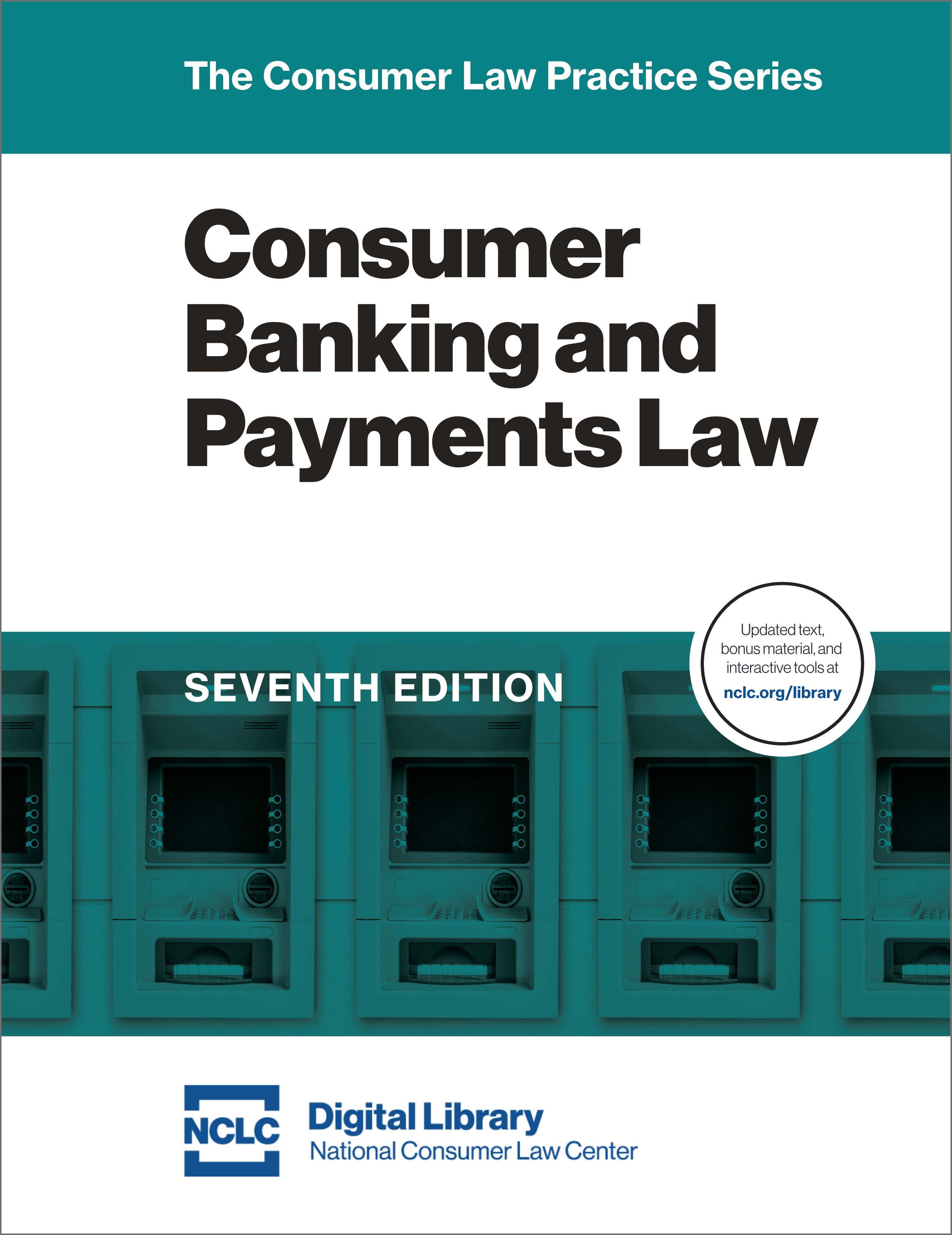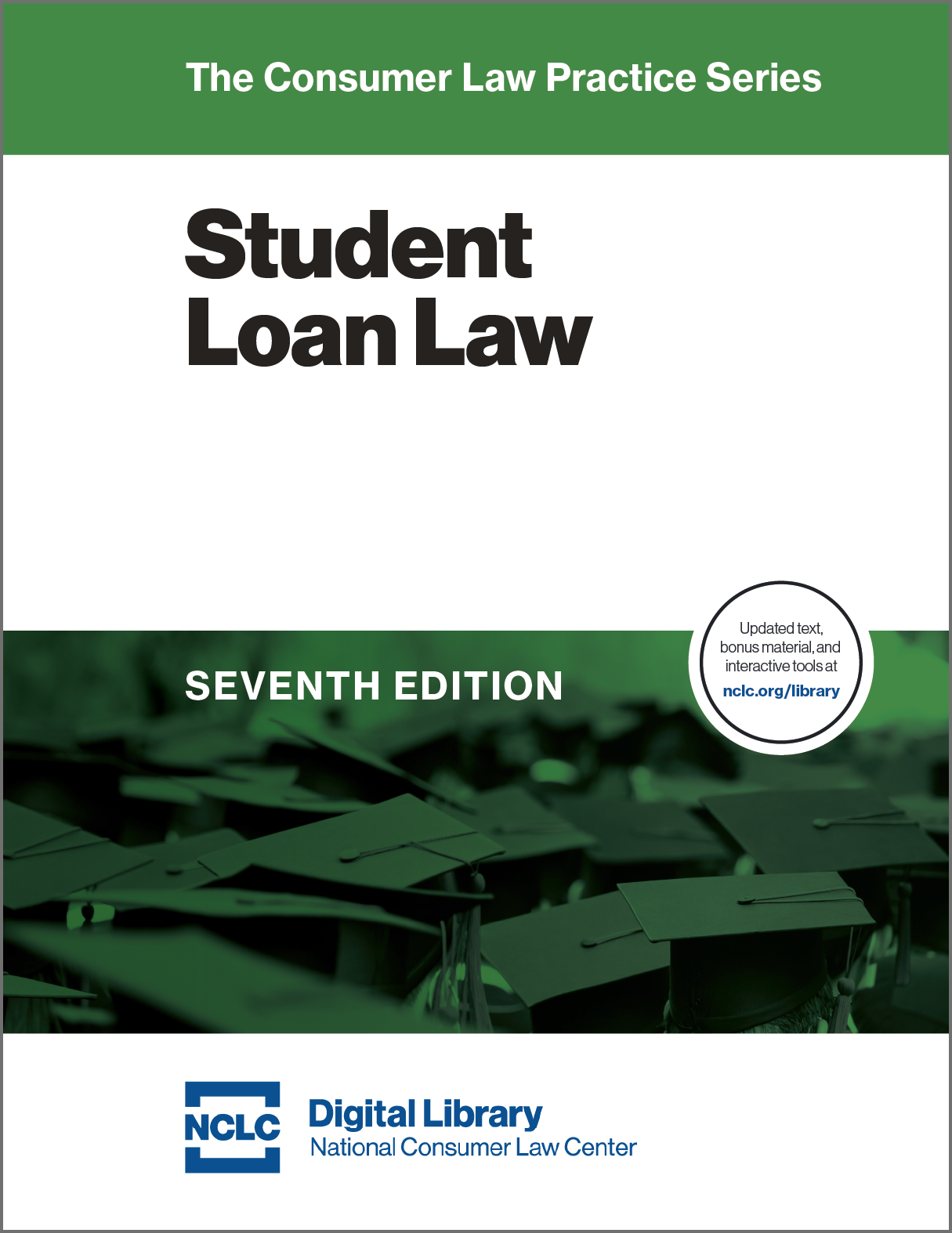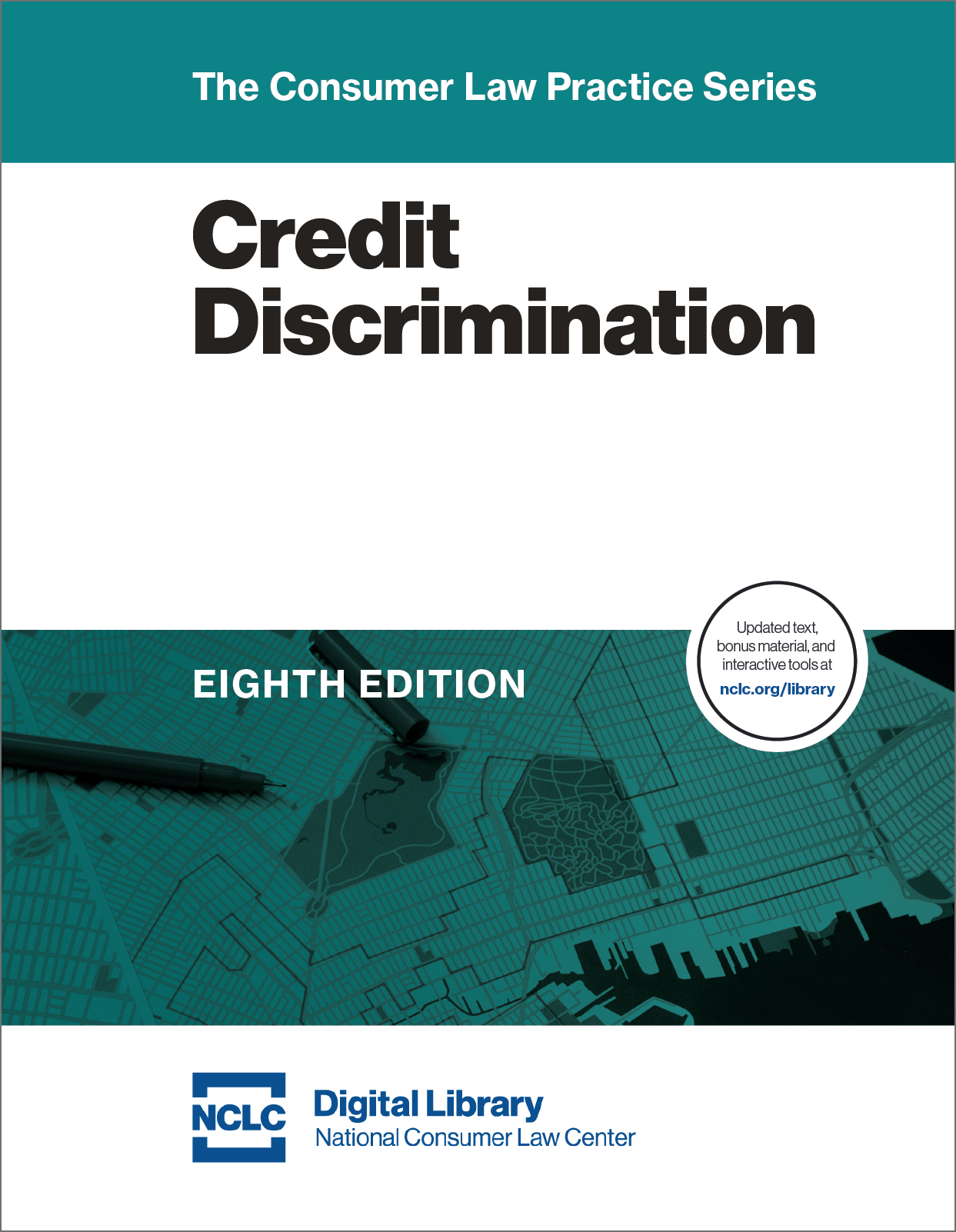Current Options to Lower Mortgage Payments: Consumer Debt Advice from NCLC
Fannie and Freddie Foreclosures Must Meet Constitutional Due Process Standards
Fannie, Freddie Create New Mortgage Loan Modification Program
Two Novel Ways to Eliminate a Foreclosure
Viable FDCPA Claims Arising from Foreclosures After March 20 Supreme Court Decision
Overview
On March 20, 2019, the Supreme Court’s unanimous decision in Obduskey v. McCarthy & Holthus L.L.P. examined liability for violations of the Fair Debt Collection Practices Act (FDCPA) that are committed in non-judicial foreclosures. This article considers which FDCPA claims arising from foreclosures are viable post-Obduskey.
The Federal Housing Finance Agency’s Principal Reduction Modification Program (Very Modest and Very Late)
On April 14, 2016 the Federal Housing Finance Agency (FHFA) announced what it described as its final loss mitigation initiative of the foreclosure crisis, a “Principal Reduction Modification Program.” The Program will apply to a limited number of loans owned or insured by Freddie Mac or Fannie Mae. Borrowers will not be able to apply for these modifications.
New July Student Loan Rule Amendments: What Changes and What Does Not
Mortgage Relief for Homeowners Affected By COVID-19
Bankruptcy’s Role in Alleviating Criminal Justice Debt
Unpaid criminal justice debt can have draconian consequences, and this article explains how a bankruptcy filing can sometimes be effective in reducing that debt. Although criminal fines and restitution orders are not dischargeable in bankruptcy, other portions of a filer’s criminal justice debt may be dischargeable. The article also links to several resources covering this topic: a free May 13 webinar, a recent report, and NCLC treatises.
Image
Twelve Dramatic Changes Offering Relief for Student Loan Borrowers
This article describes new major relief for student loan borrowers: $10,000 or $20,000 for millions of borrowers, and added relief for those in public service, in default, with disabilities, attending specific schools, with private loans, or with IDR plans. New loan servicers and no more private debt collectors. The article links to more detail and sets out steps borrowers should take now to make the most of the offered relief.
Advising Clients When an Abusive Partner Coerces Debt
This article provides practical tips for advising clients with debt incurred by an abusive partner through coercion and fraud—developing a safety plan, documenting the coerced debt, protecting bank accounts, dealing with unauthorized credit card use, preventing an abuser from opening new accounts in the victimized partner’s name, addressing coerced debt on a credit report, and dealing with home mortgages.
Image

Student Loan Borrower Rights After the Supreme Court Ruling
Forty-five million borrowers are scrambling to figure out options for managing their federal student loans before repayments resume this fall. This article sets out new student loan rights: fresh starts for those in default; the SAVE repayment plan; lower interest charges; avoidance of school arbitration provisions; and easier paths to public service loan forgiveness, bankruptcy discharges, and five types of statutory loan cancellations.
Last Minute Relief for Foreclosed and Struggling Homeowners Now Filing Their Taxes
As explained in this article, February legislation provides important tax relief to homeowners who faced foreclosure, short sales, or loan modifications in 2017. The Qualified Principal Residence Indebtedness exclusion that had expired after 2016 has been extended, allowing homeowners to continue excluding certain forgiven mortgage debt from taxable income.
Sup. Ct. Sets Standard for Consumer Relief for Collection on Debt Discharged in Bankruptcy
On June 3, the Supreme Court set the standard for consumer recovery of damages, punitive damages, and attorney fees for collection of debts discharged in bankruptcy. This article also explains that judgments on discharged debts are void, describes the advantages of FDCPA remedies, and provides a comparison between remedies for automatic stay violations and discharge violations.
When (and When Not) to File Bankruptcy
This article helps practitioners advise clients whether they should file bankruptcy, with the top 7 reasons to file and not to file bankruptcy, the proper time to file bankruptcy, and the cost of filing. The article details 6 surprising bankruptcy facts that dispel client reluctance to file a chapter 7 bankruptcy and lists sources for finding a bankruptcy attorney and more bankruptcy resources.
Image

15 Ways to Fight Foreclosure of Zombie Second Mortgages
As the name suggests, zombie mortgages can be terrifying. They rise from the dead, appear without warning, and seize homes. And they are appearing now more than ever. A new NCLC Digital Library article explains what they are, why they are now such a problem, and fifteen ways homeowners can stop foreclosures of zombie mortgages. The article also links to additional resources.
